Peace Watch » Editor's Take » Leaders And Suffering Uncertanties in Kashmir
Leaders And Suffering Uncertanties in Kashmir
PUNCHLINE
Z.G. Muhammad
Sipping tea amidst clinking of knives and forks in a busy city restaurant, a columnist friend, with an intriguing smile on his face said that “now they have decided to take head-on any opinion makers or leaders who oppose their moves for a dialogue – reconciliation.” He was referring to a statement by a group of ‘leaders’ in the morning newspapers.
Initially, I dismissed the remarks as premature and out of context. Ostensibly there have been no moves from New Delhi in the recent past for a ‘dialogue or reconciliation’ with any of the groups in the state. Something may be happening away from the media gaze- that makes a different story.
Fact of the matter is there has been no dialogue between New Delhi and the state “leaders” since 2005. The comments of columnist friend, however, made me to look afresh at the nine-year-old initiative and if it could be resurrected, what could be prospectus of its success. 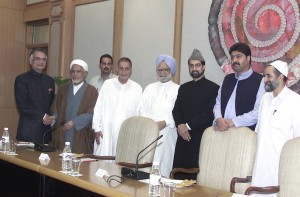
As I could make out, the dialogue by a group of ‘leaders’ in 2005 had a ‘limited’ agenda that could hardly bring any radical change on the ground. The charter of demands substantially said nothing of consequences- and it ended at a photo-op. However, this group perhaps saw meeting with Prime Minister, Manmohan Sing as an ice breaking session.
In this column, I had described this meeting as “kindergarten exercise”- for the tutorials leaders had received from Mr. Singh. The group at that time had not realized that the ‘States and the establishments’ have their own parameters for continuing and discontinuing the engagements with any group or party- and priorities remain changing. However, the group eagerly waited for next call- that did not come, ultimately it turned out to be the last “dialogue” the group had with New Delhi.
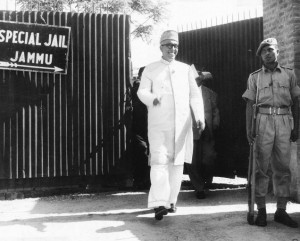 The question arises why after 2005; there was no initiative from New Delhi for resumption of the dialogue despite the group publicly asking for it. Right now, three answers come to my mind. One, the dialogue perhaps was started by the GOI for redirecting the public discourse. That objective I believe was to an extent achieved but for 2008 and 2010 mass movements reinventing the peoples discourse with new vigor. Two, the process perhaps stumbled because New Delhi realized that the group did not “enjoy combined strong mandate” a pre-requisite for dialogue in conflict situations. Third, the group had no solid proposal or proposals for settling of the ‘dispute’ that could become the moot point for the ‘dialogue’.
The question arises why after 2005; there was no initiative from New Delhi for resumption of the dialogue despite the group publicly asking for it. Right now, three answers come to my mind. One, the dialogue perhaps was started by the GOI for redirecting the public discourse. That objective I believe was to an extent achieved but for 2008 and 2010 mass movements reinventing the peoples discourse with new vigor. Two, the process perhaps stumbled because New Delhi realized that the group did not “enjoy combined strong mandate” a pre-requisite for dialogue in conflict situations. Third, the group had no solid proposal or proposals for settling of the ‘dispute’ that could become the moot point for the ‘dialogue’.
Sharing the rhetoric of our leaders, that dialogue is the only way out for resolving the disputes. It cannot be denied the idealist goal of ‘dialogue is to develop joint approaches to conflict resolution, as well as improve relationships, understanding, and trust between the contending parties’ but in our situation it boils down to a fundamental question. If contending parties could evolve a ‘consensual agenda’ for the dialogue targeted at the final resolution of the dispute- in keeping with its historicity. 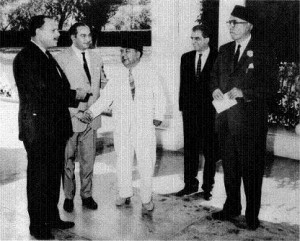
The just published memoirs of Late Munshi Ishaq “Nida-e-Haq” providing historical perspective to the dialogues held between New Delhi and Srinagar brings into focus three important points-that are relevant even today. One, New Delhi has made offers for dialogue to Kashmir leaders whenever situation in the state has been on a boil and retracted them on return of calm. Two, dialogues have crumbled ab initio because leadership suffered dilemmas and expediencies. Third, fifth columnists within strong organization like the Plebiscite Front through their interpolations and interpretations harmed the people’s narrative and strengthening the ‘dominant discourse’.
Molvi Muhammad Syed emerges in the memoirs as classical example of fifth columnists. Despite being part of the movement, he was not sincere to it and through his interpretations and interpolations; he harmed the cause of the Plebiscite Front. Munshi writes, ‘in 1958, when Sheikh Abdullah was released a resolution demanding plebiscite was adopted at a public meeting at Hazratbal for sending to GOI. Afterwards, when same resolution was sent through Mridula Sarabha to New Delhi for publication, Masoodi changed it by inserting two more words “or otherwise” after word “plebiscite”, thereby diluted the stand of the Front and brought ‘flexibility’ in Sheikh Abdullah’s ideology. 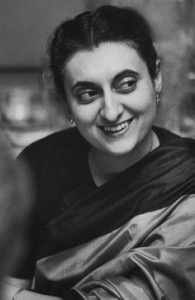
In fact, Nehru realizing Sheikh had changed sent his sister Mrs. Pandit to talk to him. However, Bakshi defeated the move by arresting Masoodi and all other leaders. It could not be without the connivance of his friend then intelligence chief B.N. Mullick. The author does not say if She had come with some proposal for Abdullah from Nehru or not. 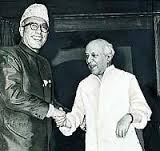
The book sufficiently enables one to understand how the Front missed opportunities of seeing its movement a success because of vacillating stand of its leader SMA. The 1964, Holy Relic Movement is a classical example of leadership betraying lack of understanding and a set goal before it. The most important fallout of this movement was release of Sheikh Abdullah, Nehru inviting him for talks and sending him to Pakistan for a meeting with Ayub Khan. Munshi very subtly suggests that despite having suffered incarceration for eleven years Sheikh had not learnt any lessons. The agenda for dialogue with Pakistan was dictated by New Delhi and even list of delegates accompanying him was provided by the agencies in the capital.
Author and journalist Khalid Hassan has confirmed affirmations made by Munshi , “Those who think that Abdullah had come with some dramatic proposal are quite wrong. The Sheikh had not changed; he was still a flunkey of Nehrus, regardless of shabby treatment he had suffered at their hands.” Sheikh Abdullah, despite, having been leader of the Plebiscite Front had not any firm idea about future of the State. In the words of historian Ramachandra Guha after his release, “Abdullah found the pro-Pakistan elements were now in majority. This did not please him.” So he started talking about “realistic solution” but he had no idea what realistic solution could be. Even during his meeting Nehru, he kept no concrete proposal before him. When Jawaharlal Nehru asked him to meet the informal committee on Kashmir headed by foreign secretary he could not contribute anything. To quote Guha, ‘He asked committee to give him more than one proposal for talking to Pakistan but solution must not weaken secular idea of Indian constitution, should not weaken position of minorities and must promote India Pakistan friendship.” Sheikh went to Pakistan with Nehru’s proposal of “confederation-, which was turned down by Ayub Khan.
Had Sheikh Abdullah not wavered on the internationally recognized status of the dispute and stood firm on the stand of the Plebiscite Front, perhaps the opportunity caused by 1962 Chinese Aggression and 1964 movement would not have been missed. Kashmir dispute would have long before become history.
History always throws up opportunities for resolution of the most intractable dispute. The leadership has to grab the opportunity.
Published in Greater Kashmir on 3-3-14
Filed under: Editor's Take · Tags: APHC, Ayub Khan Kashmir, Munshi Ishaq, Sheikh Abduallah







